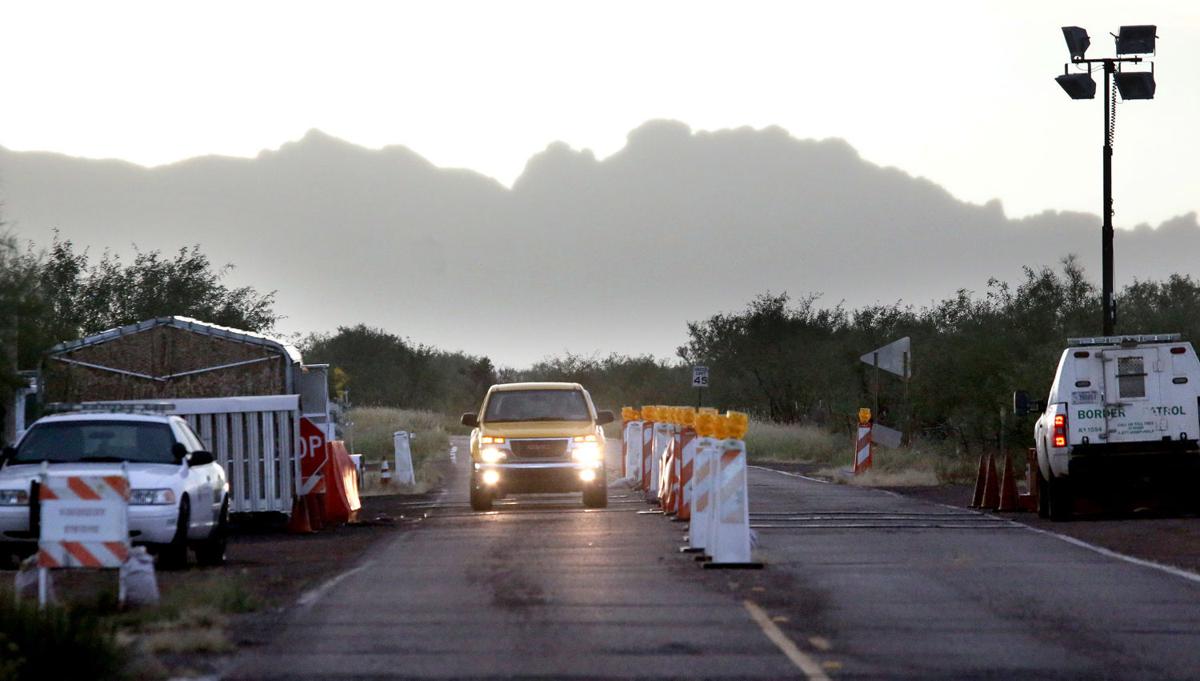PHOENIX — Abuse of travelers at Southern Arizona checkpoints is at “epidemic levels,” a scathing report Thursday by the American Civil Liberties Union contends.
The ACLU says it found “recurring example of Border Patrol agents detaining, searching and terrorizing individuals and entire families at interior checkpoints and in ‘roving patrol’ vehicle stops far into the interior of the country.”
“And you don’t have to take our word for it,” said ACLU attorney James Lyall. He said the reports come “from the government’s own records,” that it obtained from U.S. Customs and Border Protection only after the ACLU sued in federal court.
“The government’s own records show not only are widespread abuses occurring and not being investigated, not being pursued,” Lyall said. “They’re not even being disclosed accurately.”
Among the findings:
- Threatening motorists with assault rifles, electroshock weapons and knives;
- Destroying and confiscating personal property;
- Dozens of false alerts by Border Patrol drug dogs resulting in searches and detentions of innocent travelers;
- Interfering with efforts by some community members to make video recordings of Border Patrol activities.
“Above all, these documents show a near-total lack of investigation of, much less discipline for, egregious civil rights abuses,” the report states. “To the contrary, some of the records show Border Patrol tacitly or explicitly encouraging its agents to violate the law.”
What’s worse, Lyall said, is all that is not effective at catching those who enter the country illegally.
“The so-called enforcement benefits are minimal,” he said.
Lyall said that two Tucson Sector checkpoints account for 75 percent of all apprehensions.
“At others, nothing is happening,” he said.
He cited one Yuma checkpoint 75 miles from the border on U.S. 95, which he said managed to take only one person into custody over a three-year period. But Lyall said that same checkpoint produced “multiple civil rights complaints during the same period.”
A spokesman for Customs and Border Protection said it does not comment on ongoing litigation, even though the request was to respond to the report itself.
But what the ACLU found could eventually wind up in court.
“The government’s records show that there are numerous allegations of rights violations occurring all over Southern Arizona,” Lyall said. “The potential for further litigation is absolutely real.”
The report deals with Border Patrol checkpoints, both fixed and roving, along various roads, as well as stops of vehicles by agents elsewhere far into the state.
Lyall said what made investigating the practice difficult is that Border Patrol formally documents situations only when an arrest is made. What the ACLU was able to document, he said, came from the approximately 6,000 pages the ACLU obtained after filing suit detail complaints by Arizona residents and motorists from 2011 to 2014, and the agency’s response.
And Lyall said that may just be a fraction of the problems.
“It is the ACLU’s experience that the vast majority of individuals whose rights are violated by Border Patrol agents never submit formal or informal complaints,” the report says. Still they managed to come up with more than 140 civil rights complaints, most involving violations of Fourth Amendment rights against unreasonable search and seizure.
Many stem from fixed checkpoints on roads leading from the border.
In one, a man was detained along Interstate 19 after a service dog “alerted” on his vehicle. While no illegal drugs were found, he later realized Border Patrol agents had confiscated much of his prescription medication.
The report says another motorist reported being frequently subject to searches, interrogation and harassment at a checkpoint on Arizona 90. It says when the motorist complained, a supervisor responded there is “no exact standard” for secondary inspections and that agents’ actions are “based on how the agent feels.”
Then there is the ongoing battle between the Border Patrol and residents of the Arivaca area who have been trying to videotape the agents’ activities to prove their claim that motorists are being harassed. Residents say they are being kept at distances too far to see and document what is happening.
“The public has a First Amendment right to videotape public officials in public, so long as they don’t interfere,” Lyall said. He said, though, that what constitutes “interference” has to be decided on a case-by-case basis.
It isn’t just area residents having a problem.
The report says one motorist was assaulted by a Border Patrol agent who was attempting to stop that person from recording an unapproved canine search.





